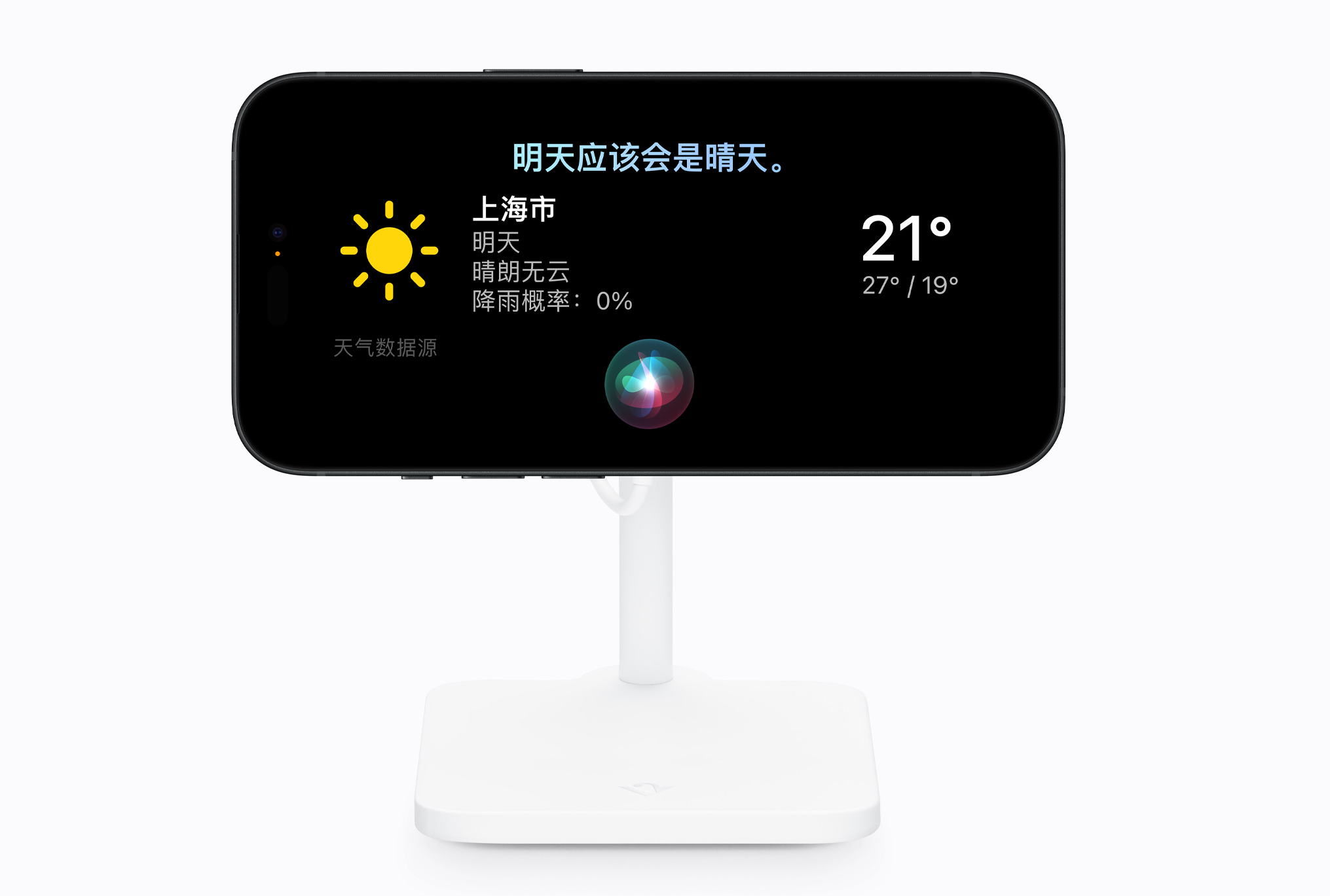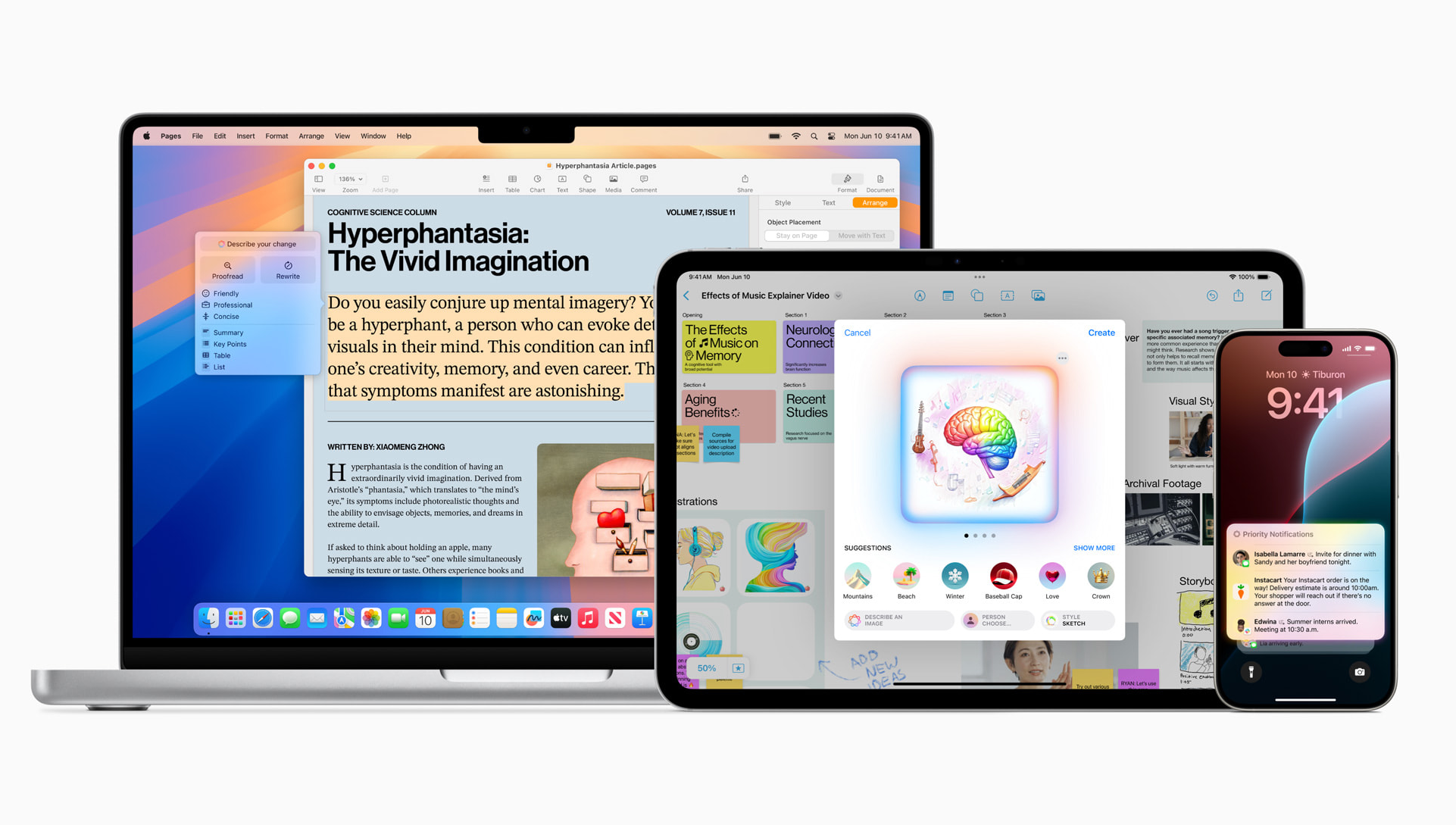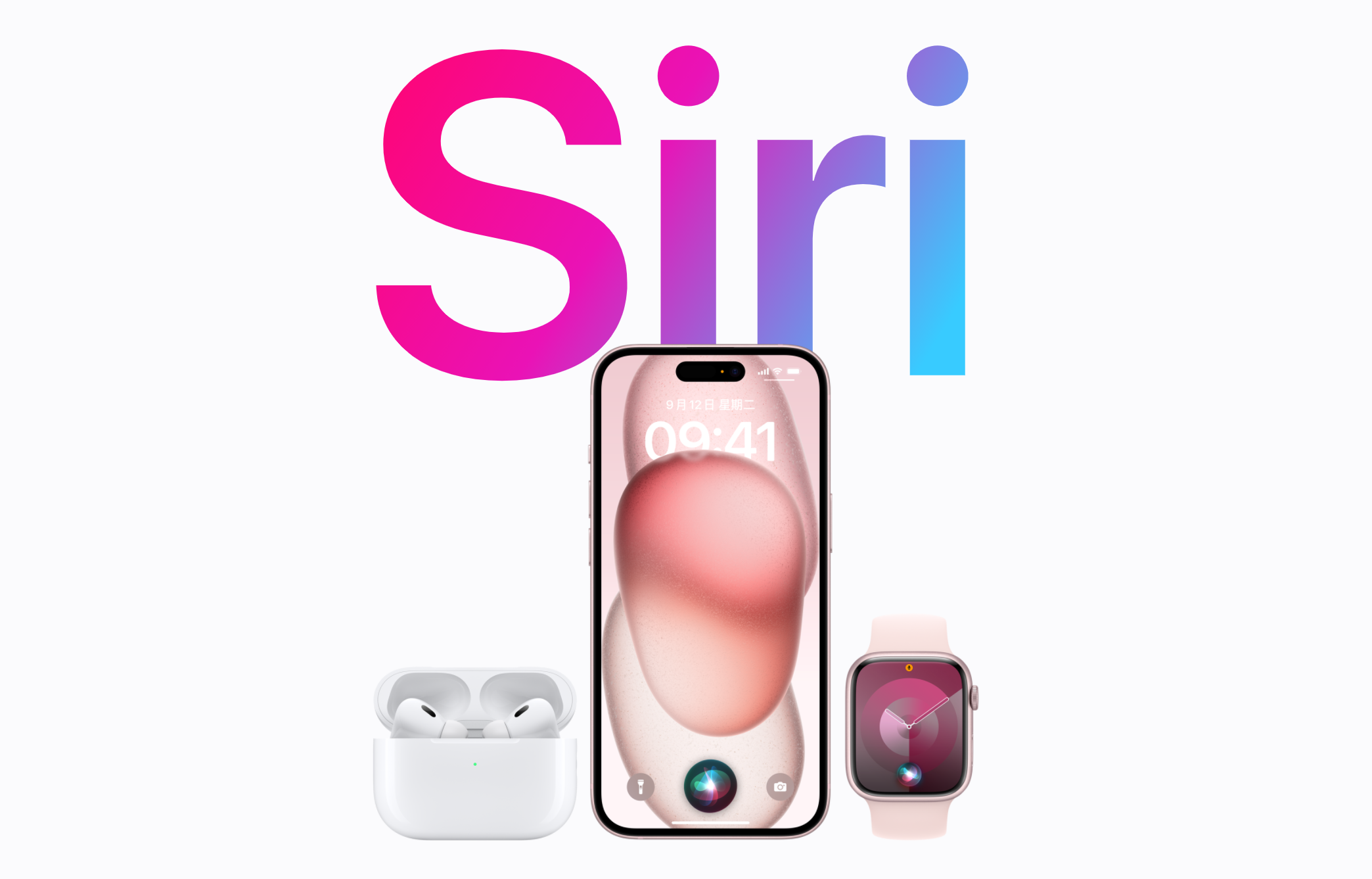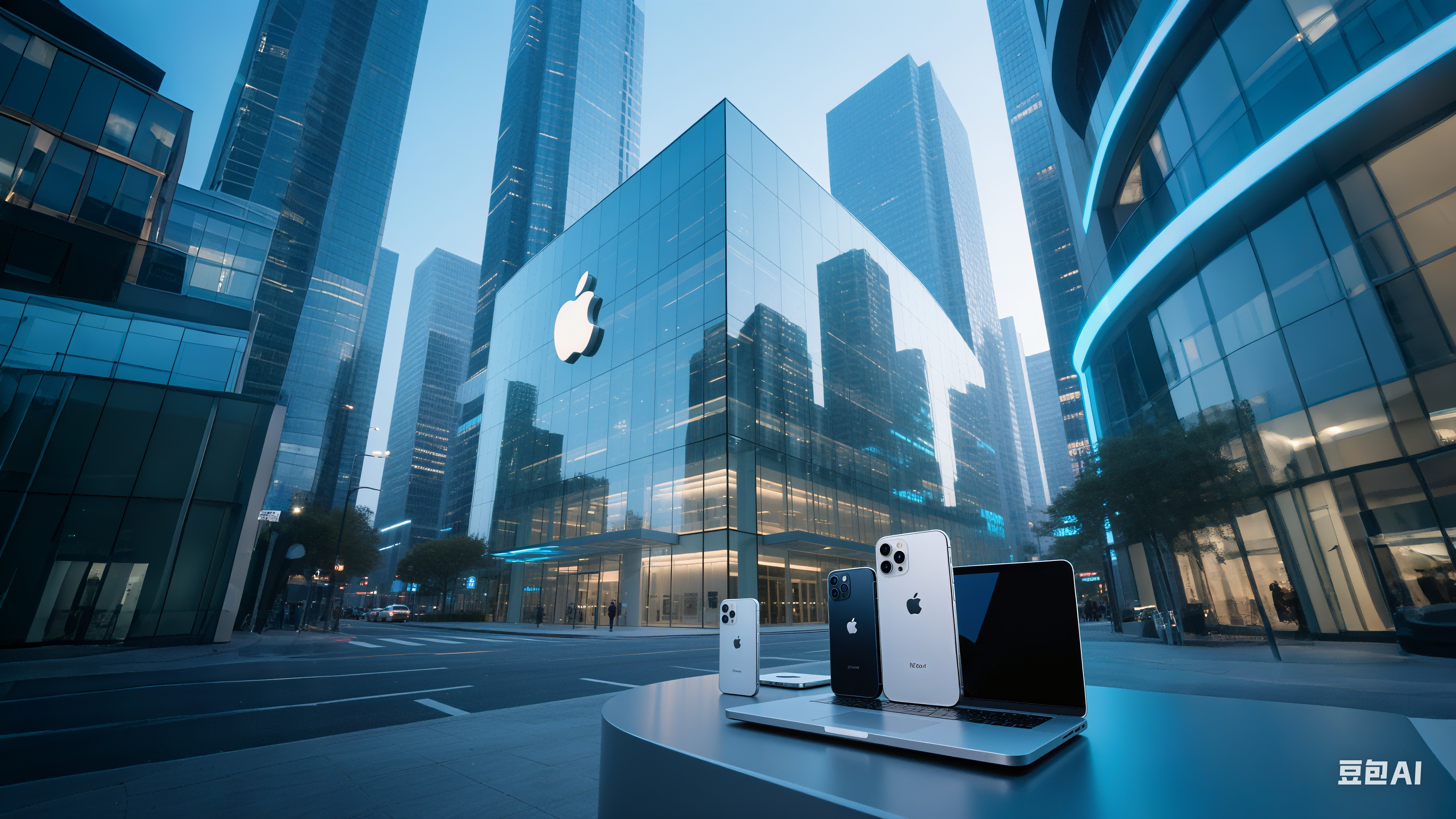Siri No Longer Exclusive? Apple Faces EU Pressure, Opening Door for Google and Amazon?
![]() 05/20 2025
05/20 2025
![]() 672
672
Can Apple Reinvent Siri?
Siri may soon find itself abandoned by users.
Recently, Bloomberg reporters Mark Gurman and Drake Bennett revealed that Apple intends to allow EU users to switch the default voice assistant on their devices, encompassing platforms like iPhone, iPad, and Mac.
The EU has long been a frontrunner in challenging Apple's monopoly, advocating for USB-C ports on iPhones and enabling app sideloading. Last year, the EU's Digital Markets Act (DMA) came into force, targeting internet giants such as Alphabet (Google's parent company), Amazon, Apple, ByteDance, Meta, and Microsoft.
Currently, none of the leading brands on Android, HarmonyOS, and iOS platforms permit users to change the default voice assistant. For smartphone manufacturers, the voice assistant is a fundamental feature. The push for Apple to allow this change may stem not only from the EU's antitrust policies but also from Siri's declining user experience.
Apple acquired Siri Inc. in 2010, integrating it into the iPhone 4S as a pioneering mobile voice assistant. However, while voice assistants from brands like Huawei, Xiaomi, Samsung, OPPO, vivo, and Honor have become increasingly user-friendly, Siri, once a leader, has lagged behind.
From Smart to "Stupid," Siri's Decline
When Siri debuted with the iPhone 4S in 2011, it was a sensation in the tech world. For a while, there was even a global trend of "teasing" Siri, asking it philosophical questions or proposing marriage, to which Siri would respond playfully. Unfortunately, that playful Siri has vanished, leaving behind a mechanical voice assistant.
The culprit behind Siri's decline could be internal disagreements within Apple.
In 2018, American media outlet The Information reported disputes within Apple about Siri's development direction. Some favored a focus on search functions, while others believed Siri should evolve into a "multi-tasking assistant."

(Image source: Apple)
Initially, the Siri team aimed to integrate e-commerce platforms and provide multi-scenario interactive services. The original version seamlessly worked with over 40 third-party services, supporting functions like restaurant reservations, ticket purchases, and local business reviews. However, after acquiring Siri, Apple banned external collaborations, significantly limiting its functionality.
Steve Jobs once stated that Siri would open up to third parties in the future, but he passed away the day after the iPhone 4S and Siri were launched. Without a strong leader, disagreements about Siri's direction escalated, leading to wasted resources and slow progress, ultimately allowing competitors to surpass Apple. Three of Siri Inc.'s co-founders, Dag Kittlaus, Adam Cheyer, and Tom Gruber, left the company due to their inability to realize their vision within Apple.
The AI era has presented new possibilities for voice assistants. Manufacturers like Huawei, Honor, OPPO, and vivo have integrated DeepSeek to enhance semantic understanding and content generation.
Apple recognized AI's importance as early as 2014, acquiring dozens of AI companies and considering a $4 billion acquisition of the autonomous driving firm Mobileye. However, as AI integrated into daily life, Apple's old issues resurfaced.

(Image source: Apple)
Mark Gurman noted that Apple's software chief Craig Federighi is skeptical of AI, believing it carries significant risks with limited rewards and is unwilling to invest heavily. Although AI chief John Giannandrea supports AI development, his work often clashes with Federighi. Moreover, training voice assistants based on large language models requires vast amounts of data, and Apple's stringent privacy policies hinder Siri's progress.
Apple Intelligence's launch received mixed feedback. Apple planned to enable cross-application operations using Apple Intelligence and App Intents, but Apple Intelligence's poor performance delayed Siri's upgrades. In March 2024, Apple's Senior Director Robby Walker stated that Siri operates stably in only 60%-80% of cases, necessitating the postponement of new features.
As the core of the Internet of Everything, mobile phone voice assistants will undertake increasing tasks and responsibilities. Allowing users to change the default voice assistant means Apple will compete directly with Google Assistant and Amazon Alexa in EU member states. Previously, users had no choice but to tolerate Siri's shortcomings. In the future, if Siri fails to improve, it may be abandoned by European users.
Major Team Overhaul: Apple's Resolve to Reinvent Siri
In the era of the Internet of Everything, smartphones serve as the control hub of smart ecosystems, offering significant profit potential in cross-software operations and smart device interconnections.
According to BankMyCell, Apple's share of the US mobile phone market reached 61.45% in 2024. Counterpoint Research indicates that Apple dominated 66% of the high-end ($600+) mobile phone market in 2024.
Apple's large market share and premium sales give it leverage in negotiations with software developers and smart home companies. Replacing Siri with other voice assistants could jeopardize Apple's position, disrupt its ecosystem, and cause partners to turn to Google and Amazon.
Apple has long been aware of Siri's declining user experience and has attempted reforms. In 2023, Apple mandated engineers to develop Siri based on in-house large language models, banning the integration of external models like ChatGPT. After taking over the Siri project, Federighi focused on efficiency and experience, introducing external large AI models, breaking Apple's tradition of closed development.

(Image source: Apple)
The new Siri engineering leader, Mike Rockwell, has implemented significant changes, transferring capable members from the Vision Pro software team to manage Siri, and restructuring it technically from the ground up. Currently, Siri uses a "dual-brain" system: one for traditional commands and another, based on large language models, for complex tasks. Apple aims to unify these into a single LLM system, a goal that will take several years to achieve.
Mark Gurman claimed that insiders revealed Apple has high hopes for Siri powered by large language models but will distinguish it from Apple Intelligence in marketing. This move suggests Apple acknowledges its lag in AI, potentially affecting its reputation.
To minimize brand impact, Apple has altered its marketing strategy, avoiding overpromising. Previously, Apple announced new features months before launch, sometimes delaying them due to development issues. Now, Apple's feature release schedule is more pragmatic, reflecting internal recognition of Siri and AI project deficiencies.
Apple's biggest challenge is unifying internal opinions. John Giannandrea, the AI chief who joined from Google, has limited influence due to his inability to integrate into Apple's core circle, leading to insufficient AI investments. Even with the AI boom sparked by OpenAI, Federighi still believes companies like OpenAI, Meta, and Google pose no threat to Apple.

(Image source: AI generated by Doubao)
Several Apple executives share Federighi's stance. Gurman revealed that some executives believe in the AI world, you don't truly understand a product until you've invested in it, which contradicts Apple's usual approach. When Apple develops a product, it already knows the end goal.
Apple's primary issue is its failure to adapt its mindset to large AI models, leading to internal disagreements. Steve Jobs' unique vision was crucial for Apple's focus and success with the iPhone, which revolutionized the smartphone industry.
The Siri team's overhaul demonstrates Apple's determination, but whether Rockwell and his team can create a competitive Siri remains to be seen. Considering Siri's upgrade delays, even if Apple can develop a competitive Siri, it won't be available until at least 2025. This downtime will be crucial for Google and Amazon to expand their market share.
Apple's Struggle, Amazon and Google's Opportunity
Gurman didn't specify when EU iPhone users can change their default voice assistant, but with increasing EU pressure, Apple's time is limited. The problem is that restructuring Siri will take several years, and launching announced features will take another year.
This downtime presents an opportunity for Amazon and Google, whose voice assistants offer numerous skills. For instance, Alexa+, powered by generative AI, understands contextual semantics and assists with tasks like entertainment, learning, and home management.
The EU, with a population of about 450 million, has market potential on par with the US. The downtime before the launch of the upgraded Siri and the large language model-based Siri will be Google and Amazon's prime time to expand their influence and user base.
Fortunately, apart from the EU, major Apple markets like China and the US are relatively supportive, with no reports requiring Apple to allow voice assistant changes. Relying on these markets, Siri can maintain its user base.
Since outlining its AI strategy in 2014, Apple has acquired multiple companies and has ample financial resources and talent. What it lacks is the courage to integrate them and invest sufficiently. Microsoft stated earlier this year that it would invest $80 billion in AI data centers in fiscal year 2025, while companies like Meta, Google, and Amazon also invest heavily in AI R&D.
One reason for Apple's lagging AI technology is its "overly self-centered" approach, focusing on what it thinks users need rather than asking users. Led by Federighi, some executives are reluctant to invest heavily in AI. However, the Siri team's overhaul and marketing strategy shift indicate Apple is mustering energy to prove itself amidst Siri's skepticism.







